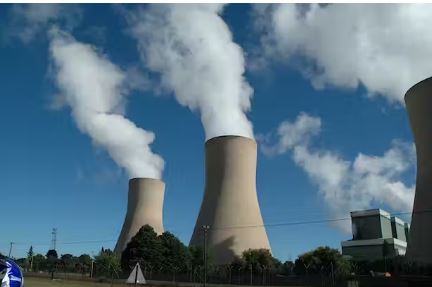A new European law that imposes the first ever carbon border tax in the world comes into force in October 2023. It will be applied gradually over the next three years before it is fully implemented.
A carbon tax is a type of levy imposed on greenhouse gas emissions. It is meant to encourage companies to adopt clean methods of production.
But firms could get around the tax by moving production units outside the EU to countries with less strict terms, such as those in Africa, and then exporting products back to the EU. That’s why the EU has come up with the Carbon Border Adjustment Mechanism.
At the moment it costs firms operating within the EU around €80 (US$86) to emit one tonne of carbon dioxide. Under the new system, importers will be charged the same for carbon emissions as domestic producers are.
The new policy will initially apply to iron, steel, cement, aluminium, fertilisers, hydrogen and electricity generation. But the mechanism has proved to be highly controversial.
In the global north it’s been applauded as a positive climate action. The policy’s architects see it as an opportunity for the EU to play a “leading role at the global level” on climate action. Climate activists in the global north are excited about it too, although a UN Conference on Trade and Development study concluded that emission reduction from the carbon border adjustment mechanism “represents only a small percentage of global CO₂ emissions”.
In the global south it’s been heavily criticised. Critics see it as an industry protection measure that will have negative repercussions on regions such as Africa. The question being raised is whether such climate action is just.
To put this in context, the annual losses from the border tax represent, in value, three times the development cooperation budget that the EU committed to Africa in 2021. In 2021 the EU allocated €6.3 billion (US$6.8 billion) to the continent.
Observers say Africa would be the most affected region, as a share of GDP. This is because the EU represents a key market to many African economies exporting the products covered by the new law.







